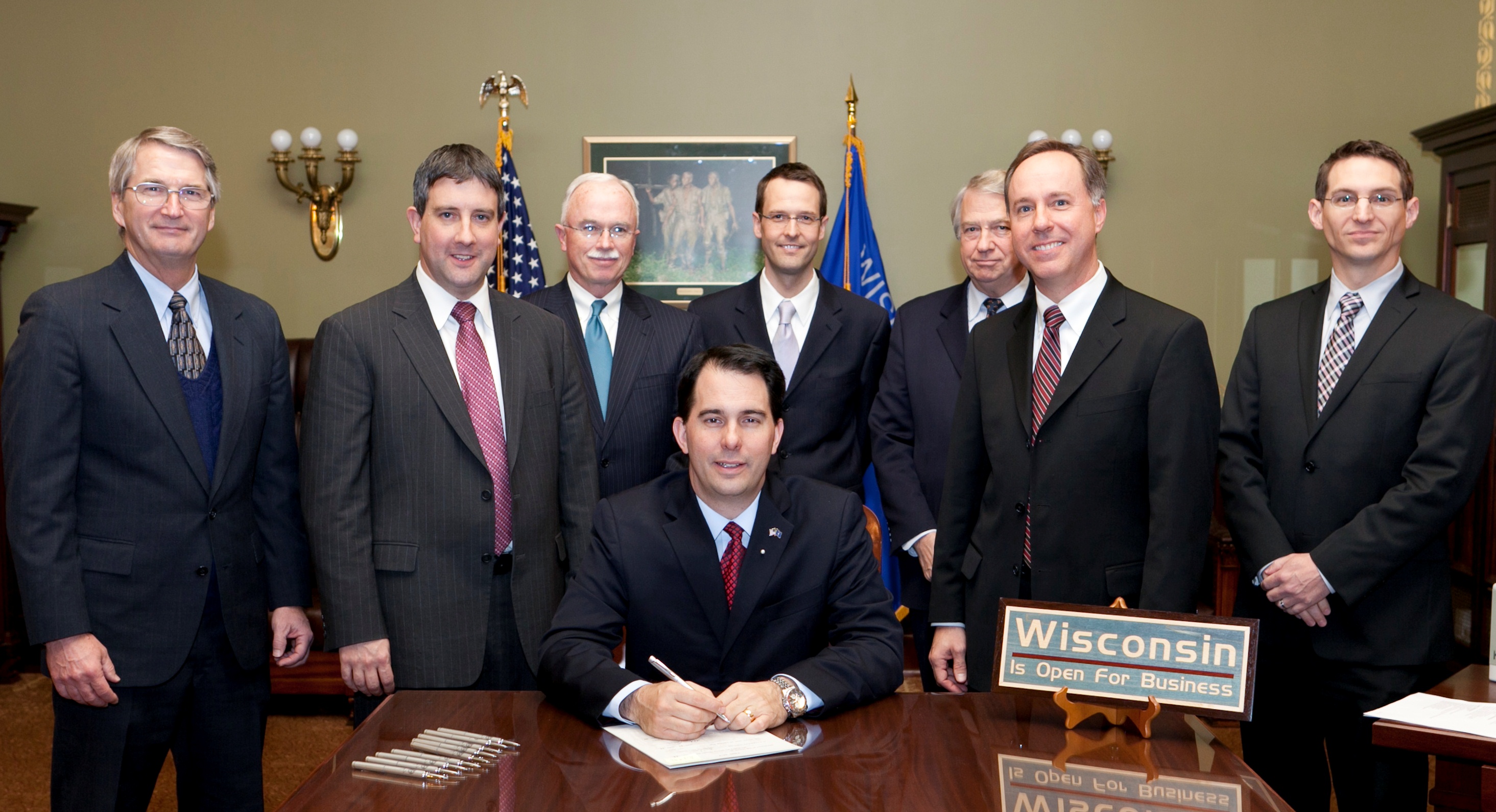Today, Governor Scott Walker signed into law two of the remaining special session tort reforms bills recently passed by the Legislature. The two bills the Governor signed were:
TRESPASSER LIABILITY – SPECIAL SESSION SB 22/AB 22 – 2011 WISCONSIN ACT 93
Previously, trespasser liability law was based solely on common law, which adopted provisions of the Restatement (Second) of Torts. At common law, a land possessor is liable for intentional or willful injury against a trespasser and is required to warn known trespassers of dangerous conditions on the premises. This legislation codifies the traditional common law regarding trespasser liability and prevents the implementation of a newly rewritten Restatement of the Law (Third) Torts: Liability for Physical and Emotion Harm (Section 51). This new Restatement would have imposed a duty on land possessors to exercise reasonable care to all entrants, including unwanted trespassers, unless the trespasser is “flagrant,” which has yet to be defined. This bill codifies current case law and protects landowners from potential liability due to injury to trespassers.
AWARDING REASONABLE ATTORNEY FEES – SPECIAL SESSION SB 12/AB 12 – 2011 WISCONSIN ACT 92
This legislation provides certainty for businesses by creating new factors for a court must weigh in determining reasonable attorney fees in fee-shifting cases. The bill also places a cap on attorney fees.
The bill lists the following criteria a court must consider when setting reasonable attorney fees: 1) the time and labor required by the attorney; 2) the novelty and difficulty of the questions involved; 3) and the complexity of the case; 4) the skills needed to perform the legal service properly; 5) the likelihood that the acceptance of the particular case prevented the attorney from accepting other work; 6) the fee customarily charged in the locality for similar legal services; 7) the amount involved in the legal dispute and the results obtained; 8 ) the fees granted in similar cases; 9) the time limitations imposed by the client or by the circumstances; 10) the nature and length of the professional relationship with the client; 11) the experience, reputation, and ability of the attorney performing the services; 12) whether the fee is fixed or contingent; and 13) the legitimacy of any defenses raised in the case.
The bill also limits attorney fees to three times the amount of compensatory damages awarded, except in cases of nonmonetary relief, or in cases involving both compensatory and nonmonetary relief. Senate Amendment 2 modified the provisions of the bill regarding the “three times” limitation. Under the amendment, the court must presume that reasonable attorney fees do not exceed three times compensatory damages, but this presumption may be overcome if the court determines, after weighing the above factors, that a greater amount is reasonable.

For more information, please visit WCJC’s Key Issues page. Also, please feel free to contact Andy Cook or Bob Fassbender if you have any questions or comments.
